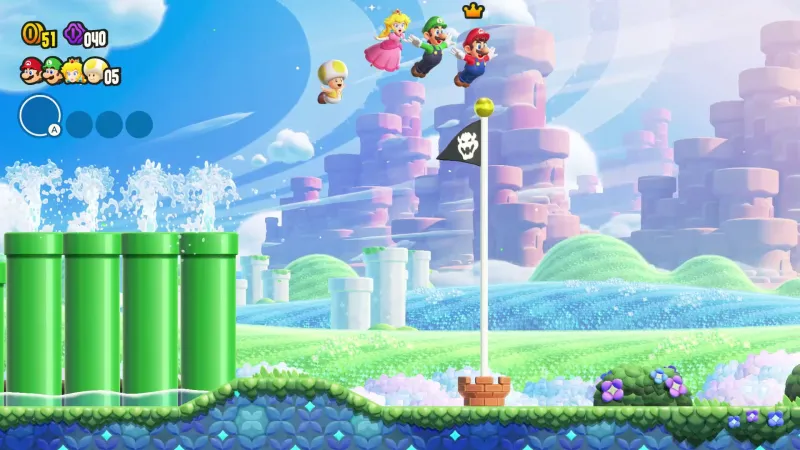

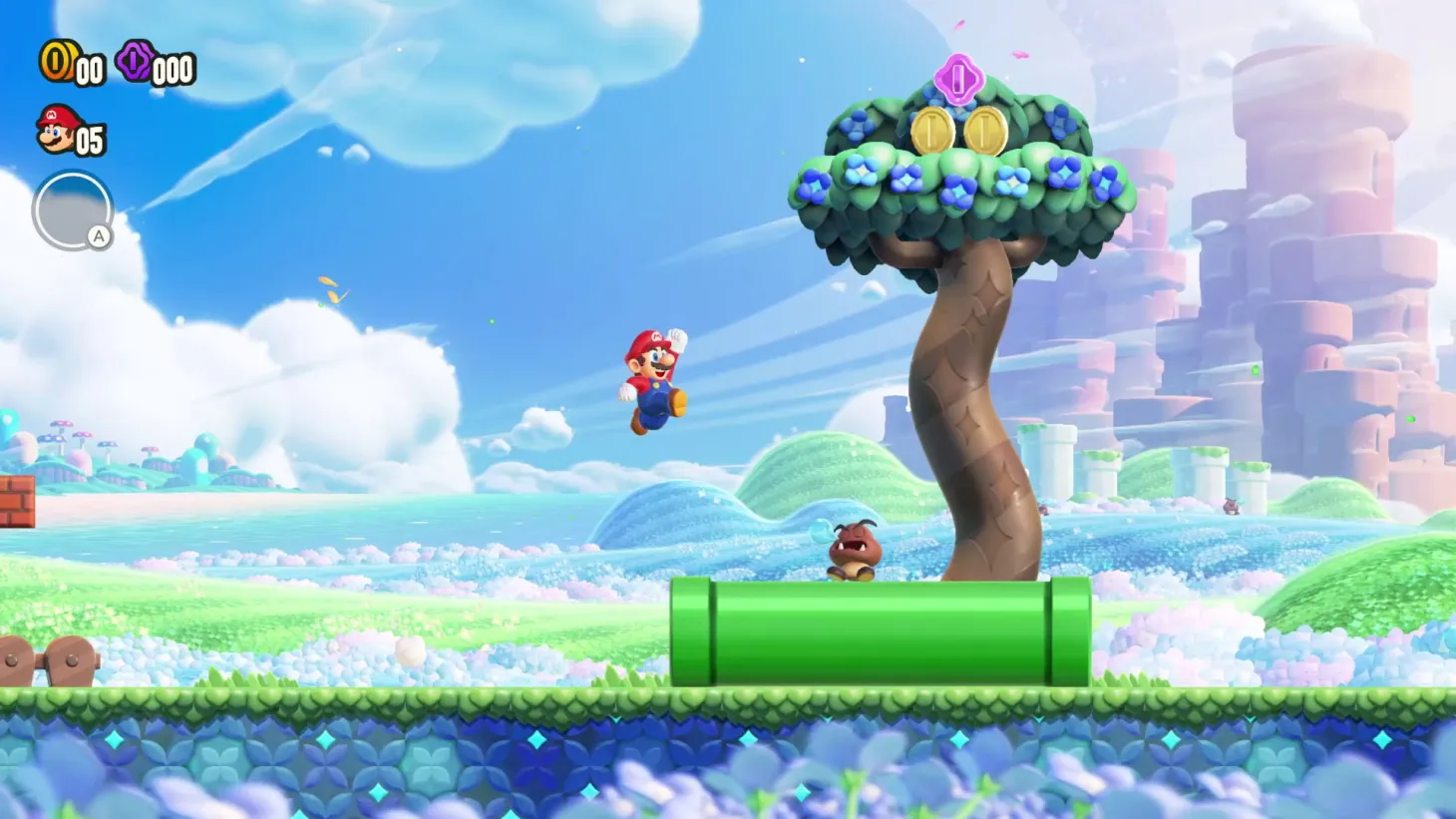
Following the last entry in the New Super Mario Bros. series, which was based on the idea of recreating the experience of the original Super Mario Bros. game from 1985 in a modern way, Nintendo went back to the drawing board. Though the four distinct New Super Mario Bros. games were well-received and extremely successful, the developers wanted to deliver something fresh to fans of the 2D series.
"The New Super Mario Bros. series has been going on for a while since the release of New Super Mario Bros. on Nintendo DS, so we wanted to create an all-new 2D Mario experience," Super Mario Bros. Wonder director Shiro Mouri says. "That's how this project started."

Despite the initial desire to create something new, Mouri and his development team started thinking about what made the series so distinct and special in the first place. Mouri joined Nintendo in the late 1990s and has worked on titles like Super Mario Sunshine, The Legend of Zelda: A Link Between Worlds, and New Super Mario Bros. U, but he wanted to examine the impact of games that came out prior to his tenure at Nintendo.
"I believe that the first Super Mario Bros. game was really a game filled with secrets and mysteries," Mouri says. "For example, if you get a mushroom, your body becomes big. And there are also pipes that initially seem to be just obstacles when, in turn, you can actually go into it and access an underground area. It's really filled with secrets and mysteries."
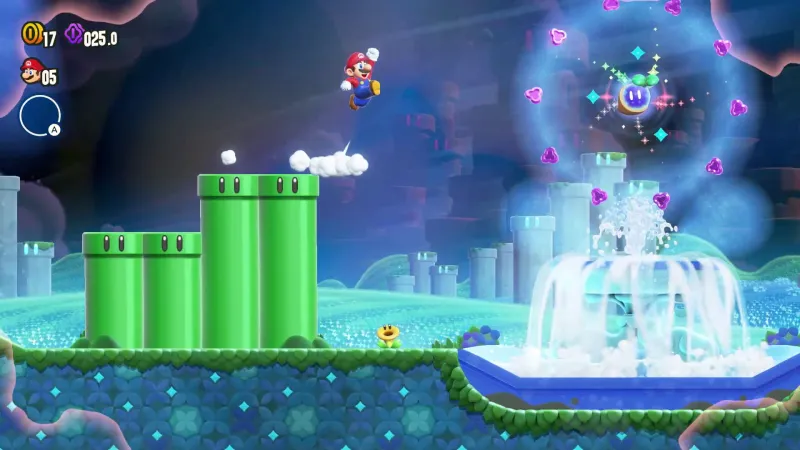
Mouri took this as one of his primary inspirations when thinking about how to push the series forward, making "secrets and mysteries" one of the primary concepts for Super Mario Bros. Wonder, but he wanted to do it in a different way. "As we progressed the series forward, and there are a lot of entries in the series, we realized that this idea of having secrets and mysteries sort of became standardized," he says. "That's something we tried to combat that challenge that we saw – this new challenge that arose."
Mouri took inspiration from the most basic of tenets from the first Super Mario Bros. game, like the ability to go down a pipe or climb a hidden vine to access a secret area, and thought about how to evolve that concept. "That idea was grabbing an item and warping you to a different area," he says. "When we made it and actually showed it to [producer Takashi] Tezuka, he said, 'Well, if you're just going to warp somewhere, it's basically the same thing. Can you just change the area you're in right now?' When I heard that, I thought, 'Well, instead of just trying to transform one small part of the course, why not just go for the entire course?'"
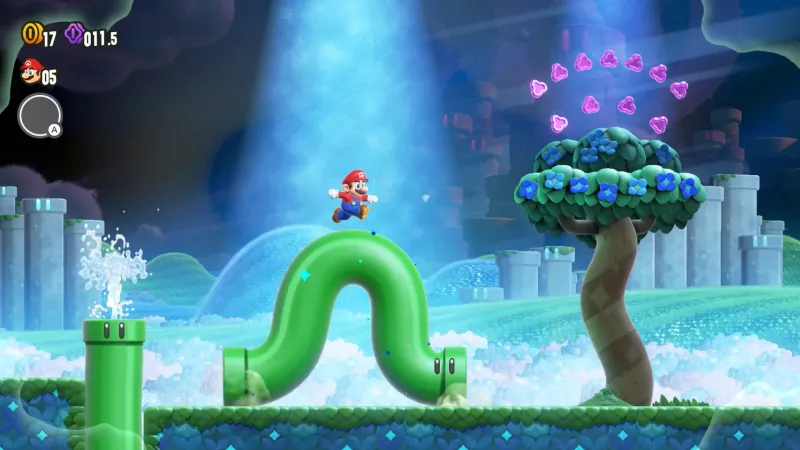
After brainstorming ideas for this new concept, Mouri came up with ideas like having a pipe wiggle like an inchworm or tilting the entire screen in one direction, creating the concept we now know as Wonder Effects. Mouri originally wanted the team to come up with several strong ideas to implement in select stages, but Tezuka, whose past credits include directing Super Mario World, The Legend of Zelda: A Link to the Past, and Super Mario World 2: Yoshi's Island, had higher ambitions for these game-changing warps. Though he loved the idea, he thought that instead of picking and choosing certain courses to include these Wonder Effects, they should put these transformations in every level.
At first, Mouri was incredulous at the suggestion, in part because the Wonder Flower, the item that activates the Wonder Effect of that level, is optional to collect. "I had to think to myself, 'Are we really going to do this?'" he says. "And I thought that because what that means – having every main course have that – there's going to also be work that needs to be [done] because the gameplay experience is different once you touch the Wonder Flower and then when you don't touch the Wonder Flower. That means we have to do that for every single course, which is, again, a lot of work. And hence, I had to really ask him, 'Are we really going to do this?' and he said yes."
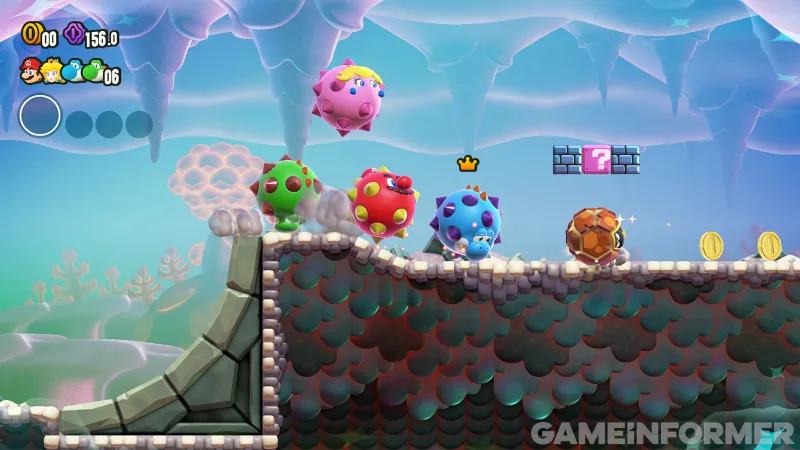
When in doubt, Mouri referred to that initial idea of filling the game with secrets and mysteries. He tells me that he realized early on that Tezuka was right: If the team really wanted to fill the game with this sense of discovery, they couldn't just deliver these Wonder Effects in a few levels; it was necessary for every main level to feature them.
While Mouri's team was working on coming up with what he describes as thousands of ideas of Wonder Effects, it turns out he wasn't the only member of the team who was referencing earlier Super Mario Bros. games for their work on the project. The expressive art style of Super Mario Bros. Wonder quickly became one of the most striking parts of the title when it was revealed by Nintendo in June, joining the Wonder Effects, unique power-ups, and distinct level design as differentiating factors.
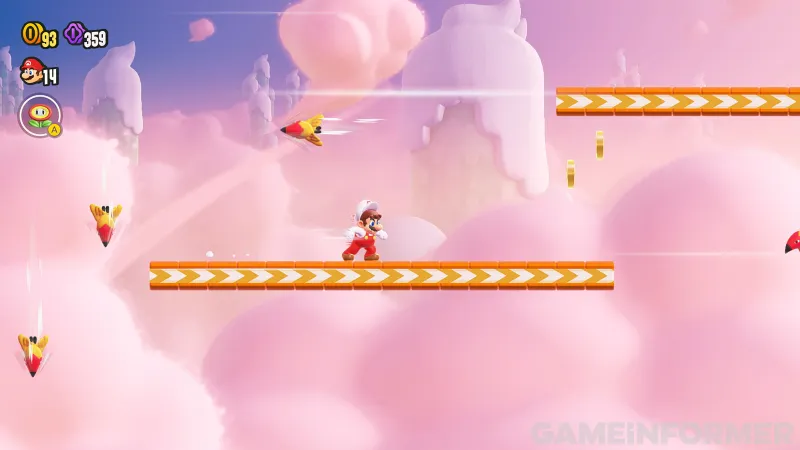
While art director Masanobu Sato says there wasn't any direct or specific source of inspiration, he did take cues from a similar source as Mouri when doing his work on Super Mario Bros. Wonder. "If I had to choose, the artwork and pixel art from past Super Mario Bros. games has had an impact on this game," Sato says. "For example, you can find tons of clues hidden in past artwork where the artist sadly and regrettably had to give up depicting certain details due to technical constraints of the hardware. Updating these so that they hold up as modern entertainment was a big challenge for the artists."
The inspiration, both in the art and gameplay, is evident, but rather than giving us a sense of deja vu, Super Mario Bros. Wonder looks and feels like a fresh take on a franchise that has been running for nearly 40 years. And with the game launching in just two short weeks, I can't wait to explore the various secrets and mysteries Mouri, Tezuka, Sato, and the rest of the team have placed in this game.
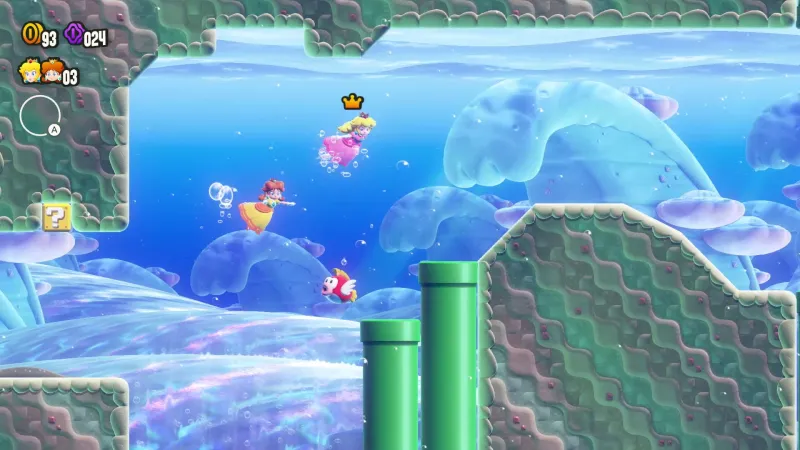
Super Mario Bros. Wonder launches on Switch on October 20. For more on the upcoming platformer, you can check out our exclusive coverage hub by clicking the banner below or reading the cover story of our latest issue here.